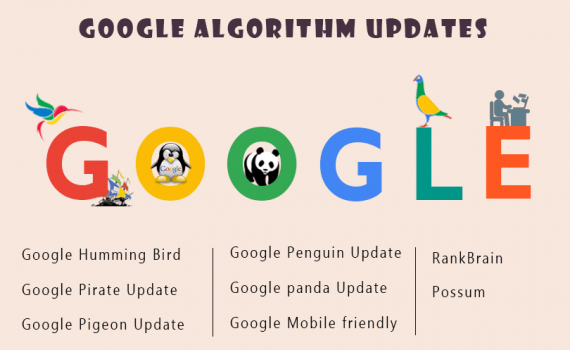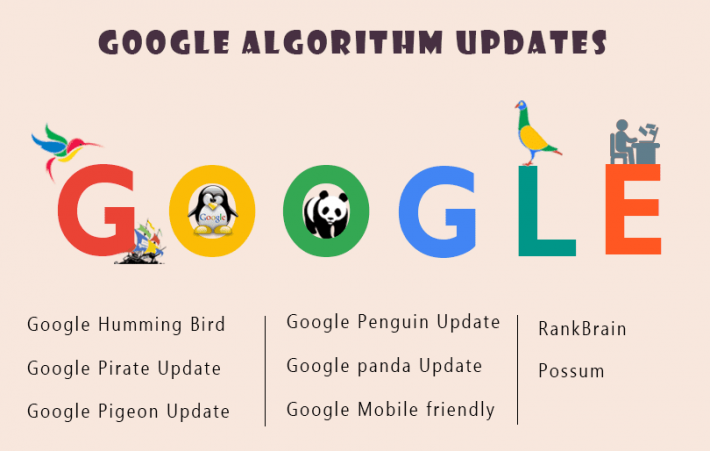
Google Algorithm Update: What It Means for SEO
Category : SEO News
In the ever-evolving world of SEO, staying informed about Google’s algorithm updates is crucial for maintaining and improving search rankings. Google’s algorithms are constantly being refined to deliver the most relevant and high-quality results to users. Understanding these updates and their implications can help you adapt your SEO strategy effectively. In this article, we’ll dive into Google’s latest algorithm update, exploring its key features, impacts, and what it means for your SEO strategy.
1. Overview of the Latest Algorithm Update
Google’s latest algorithm update, rolled out on [Date], aims to enhance the search experience by [brief description of the update’s goal, e.g., improving content relevance, combating low-quality sites, etc.]. This update is part of Google’s ongoing effort to ensure users receive the most accurate and valuable information possible.
Key Features of the Update:
- [Feature 1]: Describe the primary change introduced by the update.
- [Feature 2]: Explain any additional adjustments or new factors that have been incorporated.
- [Feature 3]: Highlight any major shifts in how Google evaluates content or site performance.
2. How the Update Affects Search Rankings
The latest update introduces several changes that impact search rankings. Understanding these changes is essential for adjusting your SEO strategy to align with Google’s new criteria.
Changes in Ranking Factors:
- Content Quality: Google is placing greater emphasis on high-quality, relevant content. Websites that offer valuable, well-researched, and engaging content are likely to see improved rankings.
- User Experience: User experience has become a more significant ranking factor. Factors such as page load speed, mobile-friendliness, and overall site usability are crucial for maintaining rankings.
- Backlink Quality: The update has refined how Google assesses backlinks. High-quality, authoritative backlinks are more important than ever, while spammy or low-quality links may negatively impact your site’s rankings.
Impact on Different Types of Websites:
- E-Commerce Sites: E-commerce websites may need to focus on optimizing product descriptions, improving site navigation, and enhancing user experience to meet the new criteria.
- Content Sites: Content-heavy sites should prioritize producing high-quality, original content that aligns with user intent and provides real value.
- Local Businesses: Local SEO efforts should emphasize accurate and consistent local information, positive customer reviews, and engaging local content.

Visual breakdown of how Google’s newest algorithm update affects site rankings
3. Actionable Steps to Adapt Your SEO Strategy
To navigate the changes brought by the latest algorithm update, consider implementing the following strategies:
- Conduct a Content Audit: Review your existing content to ensure it meets high-quality standards. Remove or update outdated or low-performing content.
- Focus on User Intent: Create content that aligns with user search intent and addresses their needs comprehensively.
- Incorporate Rich Media: Utilize images, videos, infographics, and other rich media to enhance content engagement and value.
Optimize User Experience:
- Improve Site Speed: Use tools like Google PageSpeed Insights to analyze and enhance your site’s loading times.
- Ensure Mobile Friendliness: Make sure your site is fully optimized for mobile devices, providing a seamless experience across all screen sizes.
- Enhance Navigation: Simplify site navigation to make it easier for users to find the information they need quickly.
Build and Maintain High-Quality Backlinks:
- Focus on Authoritative Sites: Aim to earn backlinks from reputable and relevant sites within your industry.
- Avoid Spammy Links: Regularly audit your backlink profile and disavow any low-quality or spammy links that may harm your site’s credibility.
- Engage in Outreach: Develop relationships with industry influencers and bloggers to secure high-quality backlinks through guest posts, collaborations, and features.
Monitor and Adjust Your SEO Performance:
- Use Analytics Tools: Leverage tools like Google Analytics and Google Search Console to track changes in traffic, rankings, and user behavior.
- Stay Updated: Keep an eye on SEO news and updates to stay informed about any further changes to Google’s algorithms.
- Adjust Strategies: Continuously refine your SEO strategy based on performance data and new insights.
4. Preparing for Future Updates
Google’s algorithms are constantly evolving, and staying ahead of these changes requires ongoing vigilance and adaptability.
Adopt a Long-Term SEO Strategy:
- Focus on Quality: Prioritize long-term quality improvements over short-term tactics. Building a strong foundation of valuable content and user experience will serve you well in the long run.
- Embrace Best Practices: Follow SEO best practices and ethical guidelines to ensure your site remains compliant with Google’s standards.
Engage with the SEO Community:
- Join Forums and Groups: Participate in SEO forums, social media groups, and industry conferences to stay connected with other professionals and share insights.
- Follow SEO Experts: Keep up with updates and advice from reputable SEO experts and thought leaders.
Invest in SEO Education:
- Stay Informed: Continuously educate yourself about SEO trends, tools, and techniques through online courses, webinars, and industry publications.
- Test and Experiment: Regularly test new strategies and tools to identify what works best for your site and audience.
Understanding and adapting to Google’s latest algorithm update is essential for maintaining and improving your search rankings. By focusing on high-quality content, optimizing user experience, and building authoritative backlinks, you can align your SEO strategy with Google’s evolving criteria and achieve long-term success. Stay proactive, monitor your performance, and be prepared to adjust your strategies as needed to stay ahead in the competitive world of SEO.